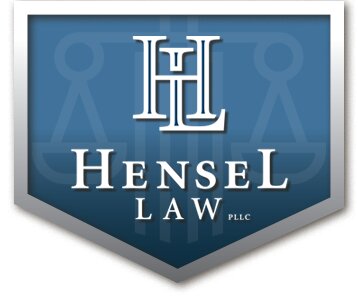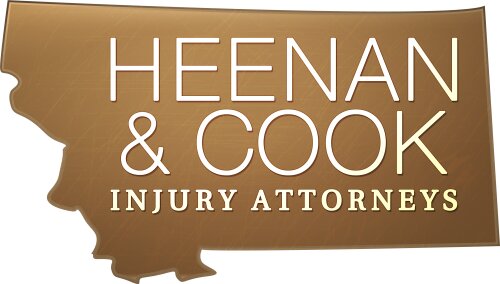Best Drugs & Medical Devices Lawyers in Billings
Share your needs with us, get contacted by law firms.
Free. Takes 2 min.
List of the best lawyers in Billings, United States
About Drugs & Medical Devices Law in Billings, United States
Billings residents and businesses operate under a dual framework of federal and Montana law when it comes to drugs and medical devices. The federal framework, centered on the Food, Drug, and Cosmetic Act, controls how drugs and devices are manufactured, labeled, marketed, and sold nationwide. This ensures consistency across states, including Billings, Montana.
State and local authorities in Montana add further layers of regulation. They license pharmacists and pharmacies, regulate controlled substances, and oversee the safe distribution of medications and devices within the state. Local enforcement in Billings aligns with Montana statutes and federal enforcement priorities.
Compliance involves registrations with federal agencies, state licensing, and ongoing reporting obligations. Violations can lead to civil penalties, license suspensions, or criminal charges depending on the behavior and severity of the violation.
The FDA explains that the FD&C Act provides the framework for drug and medical device regulation in the United States. Source
Why You May Need a Lawyer
-
A Billings clinic faces an inquiry from the Montana Board of Pharmacy over alleged improper dispensing of controlled substances. An attorney can protect licenses, review records, and negotiate with regulators to limit penalties.
-
A local medical device company seeks FDA clearance for a new device and needs guidance on the regulatory pathway, documentation, and timelines to avoid costly delays.
-
A pharmacist is charged with non compliance under Montana’s controlled substances regime and requires criminal and regulatory defense to protect rights and license status.
-
A patient harmed by a medical device installed in a Billings hospital considers a product liability claim and needs counsel experienced with Montana law and FDA regulatory context.
-
A Montana-based distributor must comply with the Drug Supply Chain Security Act and set up serialization and traceability processes to avoid federal penalties.
Local Laws Overview
In Billings, regulation of drugs and medical devices relies on federal law plus identified Montana statutes. The core authorities include the following, along with general enforcement practices in Montana and Billings:
- Federal Food, Drug, and Cosmetic Act (FD&C Act) - Governs safety, labeling, marketing, and manufacturing of drugs and medical devices in the United States. FDA overview.
- Drug Quality and Security Act (DQSA) including the Drug Supply Chain Security Act (DSCSA) - Establishes a system to track and trace prescription drugs through the supply chain. Enacted in 2013 with phased compliance through 2015-2023. DSCSA details.
- Montana Controlled Substances Act - State law governing possession, distribution, and regulation of controlled substances within Montana. See the Montana Legislature for current text and amendments. Montana Legislature.
- Montana Pharmacy Practice Act - Establishes licensing, discipline, and scope of practice for pharmacists and pharmacies in Montana. See the Montana Legislature for current text and amendments. Montana Legislature.
There are no widely used Billings city ordinances that regulate drugs or medical devices separately. Enforcement for these issues is handled through state and federal law. For Billings-based entities, the focus is often on Montana statutes and federal regulatory requirements, with local investigations following state agency processes.
Montana physicians, pharmacists and device manufacturers must comply with both state and federal requirements. For a practical overview see the Montana Legislature and the FDA DSCSA resources. Montana Legislature • DSCSA - FDA
Frequently Asked Questions
What is the FD&C Act and why does it matter in Billings?
The FD&C Act is the federal framework for regulating drugs and medical devices. It sets standards for safety, labeling, and marketing that apply nationwide, including Billings. See the FDA overview for details.
What is DSCSA and how does it affect my business in Montana?
DSCSA creates a track and trace system for prescription drugs. It requires certain manufacturers, distributors, and retailers to participate in serialization and reporting. Implementing DSCSA steps is essential for compliance.
What is the Montana Controlled Substances Act?
The act governs how controlled substances are handled within Montana, including licensing and penalties for improper distribution or possession. It is crucial for clinics, pharmacies, and physicians in Billings to adhere to these rules.
Do I need a Montana-licensed attorney for regulatory matters here?
Yes. For state licensing, investigations, or enforcement actions, you should hire a Montana-licensed attorney who understands local procedures and boards.
What is the difference between a drug recall and a safety alert?
A recall is a voluntary or mandatory action to remove a drug from the market due to safety concerns, while a safety alert may be issued to inform about potential risks. Both involve regulatory reporting and may impact supply chains.
How long does a typical regulatory investigation take in Billings?
Timeline varies by complexity, agency workload, and case specifics. A straightforward matter may resolve in weeks, while complex investigations can take several months.
What is a 510(k) clearance and when is it required?
A 510(k) clearance shows a device is substantially equivalent to a legally marketed device. It is required before many medical devices can be marketed in the United States.
Do I need special documents to obtain a professional license in Billings?
Yes. Licensure generally requires education credentials, background checks, and compliance with state board rules. Contact the Montana Board of Pharmacy or Montana Legislature for precise requirements.
Can I sue for injuries caused by a medical device in Montana?
Yes, if the injuries result from device design, manufacturing, or labeling defects. A Montana product liability or personal injury action may be appropriate, with evidence from medical and regulatory sources.
What is the PDMP and do clinics in Billings have to use it?
Prescriptions Drug Monitoring Programs track controlled substance prescriptions to prevent abuse. Many Montana prescribers must participate and report data to the state PDMP.
What should I ask a drugs and medical devices attorney in an initial consult?
Ask about experience with MT Board of Pharmacy matters, FDA regulatory pathways, DSCSA compliance, and prior outcomes in similar matters in Montana.
Additional Resources
- FDA - U.S. Food and Drug Administration - Federal regulator of drugs and medical devices, including enforcement and guidance.
- Montana Legislature - Access current Montana statutes, codes, and legislative history related to drugs, devices, and professional licensing.
- Montana Department of Public Health and Human Services - State health department overseeing public health programs, licensing, and drug safety matters.
Next Steps
- Identify your needs - Clarify whether your issue is regulatory, licensing, enforcement, or litigation. Within 2-3 days, write a one-page brief summarizing facts and goals.
- Gather documentation - Collect licenses, correspondence, witness statements, medical records, and relevant contracts within 1 week.
- Search for a Montana-licensed attorney - Look for lawyers with drugs and medical devices or regulatory practice in Billings or Montana. Plan 1-2 initial inquiries within 1-2 weeks.
- Check credentials and experience - Verify bar status, disciplinary history, and prior outcomes in MT regulatory matters. Schedule initial consultations within 2-3 weeks.
- Prepare questions for consultations - Focus on regulatory strategies, possible defenses, timelines, and fee structures. Bring your documentation to each meeting.
- Discuss fees and engagement terms - Request written fee estimates, retainer agreements, and anticipated costs for regulatory actions or litigation within 1 week of your first consult.
- Make a decision and retain counsel - Choose the attorney whose experience, communication, and plan best match your goals. Execute a retainer and start work within 1-2 weeks after the final consult.
Lawzana helps you find the best lawyers and law firms in Billings through a curated and pre-screened list of qualified legal professionals. Our platform offers rankings and detailed profiles of attorneys and law firms, allowing you to compare based on practice areas, including Drugs & Medical Devices, experience, and client feedback.
Each profile includes a description of the firm's areas of practice, client reviews, team members and partners, year of establishment, spoken languages, office locations, contact information, social media presence, and any published articles or resources. Most firms on our platform speak English and are experienced in both local and international legal matters.
Get a quote from top-rated law firms in Billings, United States — quickly, securely, and without unnecessary hassle.
Disclaimer:
The information provided on this page is for general informational purposes only and does not constitute legal advice. While we strive to ensure the accuracy and relevance of the content, legal information may change over time, and interpretations of the law can vary. You should always consult with a qualified legal professional for advice specific to your situation.
We disclaim all liability for actions taken or not taken based on the content of this page. If you believe any information is incorrect or outdated, please contact us, and we will review and update it where appropriate.










